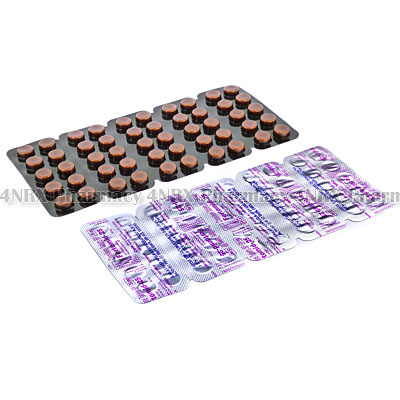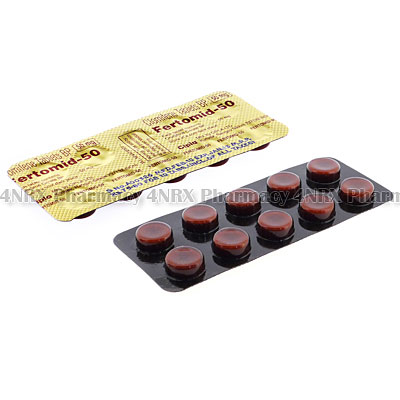 |
Home  Womens Health Womens Health  Fertomid (Clomifene) Fertomid (Clomifene) |
|
|||||||||
|
|
Fertomid (Clomifene)
What is Fertomid (Clomifene) used for? Fertomid (Clomifene) is an oral ovulatory stimulant prescribed to treat infertility in women. The medication operates by stimulating growth hormones in the body to induce the release of an egg from the ovaries allowing fertilization. It may also be effective for treating men suffering from hypogonadism. How should I use Fertomid (Clomifene)? Fertomid (Clomifene) should be used strictly according to the directions of your physician to get the safest and most effective results from treatment. The typical dosage is one tablet taken daily beginning on the fifth day of your menstrual cycle for a period of treatment lasting five days. Your physician may alter this dosage or administration frequency based on your current weight, health, age, and the severity of your symptoms. This medication is not meant for long-term treatment and should not exceed six treatment cycles. What are the side effects of Fertomid (Clomifene)? Some patients using Fertomid (Clomifene) have reported experiencing side effects such as:
Serious side effects that may require emergency medical attention are ovarian hyperstimulation syndrome, seizures, faintness, uncontrolled menstrual bleeding, discolored stools, or jaundice. Stop using the medication and contact your physician immediately if you experience any symptoms that are intense or worrying to make sure the necessary adjustments are made to your application frequency or dosage to prevent further problems from occurring. Please Note Fertomid (Clomifene) should not be used by women who are already pregnant, have tumors that may be stimulated by hormones, an ovarian cyst, or abnormal bleeding from the uterus. Also disclose if you have a history of seizures, high triglyceride levels, endometriosis, polycystic ovary syndrome, or fibroids of the uterus as these conditions may cause unexpected health problems during treatment. Strictly follow all instructions provided to you by your physician or pharmacist while using Fertomid (Clomifene). Optimum and safe dosage can differ based on the patient and the condition being treated. As this medication may be unsafe for certain patients, it is essential you always inform your physician if you are pregnant or breastfeeding, as well as if you have any allergies, other illnesses, or ongoing health conditions, and if you are taking any other form of medication, supplements, or herbal products. Immediately seek emergency medical care if you have an allergic or hypersensitive reaction. Common signs of a reaction include hives, swelling, skin rashes, chest pains, as well as trouble breathing or swallowing. 



|
||||||||||||||||||||||